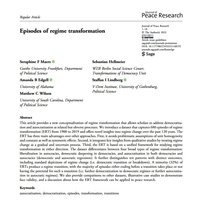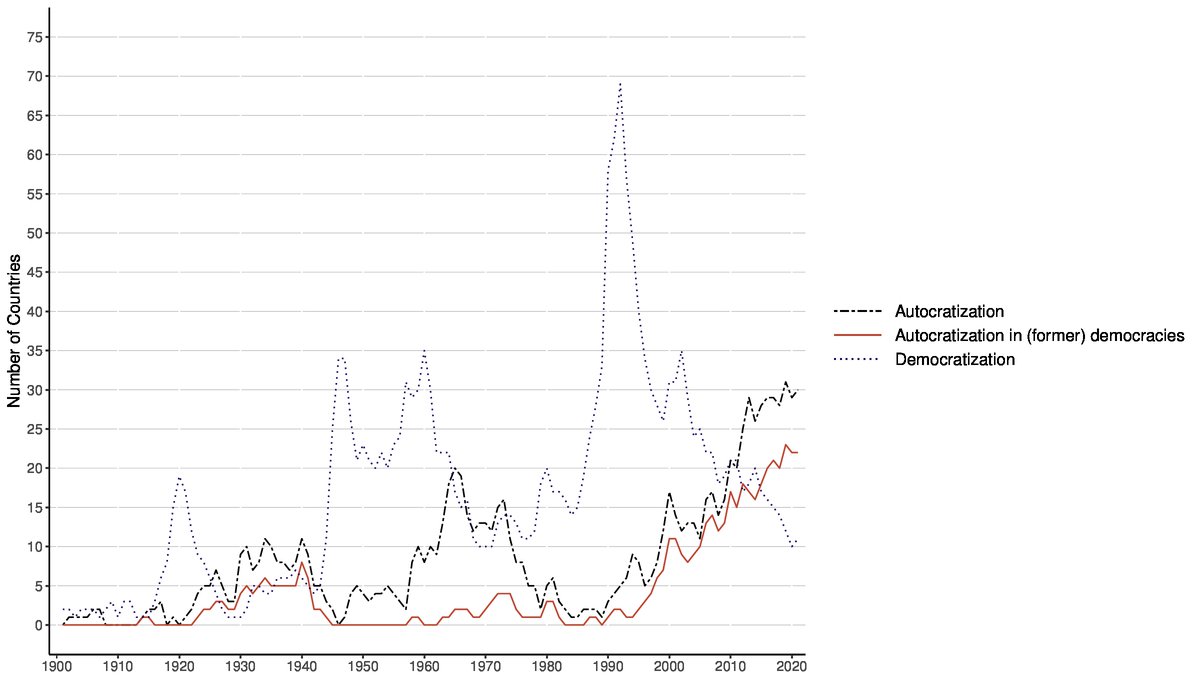FASDEM draws on methods adapted from modeling in evolutionary biology to describe transition sequences. This includes a new sequential requisites algorithm that capitalizes on the V-Dem multidimensional conceptualization of democracy to map which aspects of democracy develop before others during a democratization episode. For more on this method, see our recently published paper.
To rule out causes the project employs vector autoregression (VAR) techniques and impulse response functions. This canonical econometric approach simultaneously models the dynamics of multiple dependent indicators of democracy over time to help address theoretical questions in the literature about alternative paths to democracy. VAR allows us to test whether certain components of democracy evolve over time together in ways that suggest a causal relationship.
To further establish causal processes underlying successful and failed episodes of democratization, FASDEM draws on a cutting-edge negative outcome control technique (NOCNOC) developed by Glynn and Ichino (2018). This generalization of the difference-in-difference-in-differences (DiDiD) uses results for a placebo outcome to non-parametrically correct the results for the outcome of interest. This reduces confounding in the effect size, allowing us greater confidence in the causal inferences.



